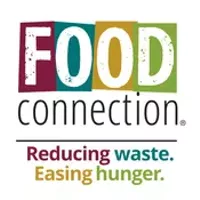The Price of Care
NC families fight to keep developmentally disabled loved ones where they belong -- at home
By Reuben BrodyPage 2 of 4
"A lot of the problem we have in CAP is that the case managers are transitory, which is a huge turnover," says Polly Medlicott. "You get a case manager, and you sort of have [to] train them. You kind of go through this process and they're gone. Families find it difficult to hold on to their care provider because they have no incentive to stay."
Another problem with the agencies is that they take a percentage of the money earned by the care provider. Some families feel there should be a choice of whether private agencies should be used, because then there would be no middleman to gobble up the excess money, which in turn would pay the care provider more and ensure better care.
It becomes more of a problem for families with two children in need of services. Take the Scandariatos -- they've got two children served under CAP. The family is served under an SLP-20, which decreases the individual hourly rate from $22 an hour per person to $28 an hour collectively. The money is taken from each child's budget, and the savings go to Medicaid.
"If you use over a certain number of Individual Periodic hours in the course of day, and I think that the number is like three and three quarter hours, if you use any more than that you have to have an hour of MR Personal Care in there." Explains Karen Scandariato. "MR Personal Care pays like $7.50 an hour. With Group SLP, it pays like $16 an hour, in my case out of the two children out of that $28. Now I'm expecting that same person, who's already in my home to work $16 an hour some hours and others at $7.50 an hour. Would you do that? No."
Coming Up With Their Own Answers
Several families (including the Medlicotts and the Scandariatos) who are served under the CAP Mentally Retarded/ Developmentally Disabled waiver have discovered a way to save the state $82,790 on 12 families this year alone. Under a pilot program called CAP SMART, the families have adopted a hypothetical "self-determination project" to find more efficient techniques of getting quality care at the lowest possible cost. The idea was to save the state money by using the funds allotted to their children through Medicaid to finance their health care. These 12 families have been attending seminars with the state partners as well as the Arc to determine the best way to administer community-assistance programs. They've also been sharing their experiences with the state government so that considerations can be made under the new system.
Polly Medlicott and the other 11 families under the "self-determination project" would like to see this accomplished.
"I don't need a case manager," attests Polly. "I'm my own case manager. In self-determination, the way that it works is they are support brokers, which is somebody that you like, that you want and understands what you want for your family member, and they go out and try and find the services in the program and help you with ideas and whatever." As she said, she is her own case manager so she doesn't even need this service, but some people do.
"With self-determination, the money follows the person," explains Polly. "Say if that person left the institution and went into the community, it's not going to cost the state extra."
"Right now we don't have the mechanism to allow that type of spending," commented Peggy Balak, the Program Support Branch Head of Developmental Disabilities for the state of North Carolina. "We are trying in modifications to make the system more flexible. However, our ability to give a family direct cash payment or even a voucher is limited by the restrictions in the Medicaid waiver. But you cannot give cash payments to a minor child. The waiver won't allow us to do that for anyone at this point."
Speaking of Metrobeat.html, 2.00000
-
Letters To The Editor
Nov 28, 2007 -

Zoom-Zoom
Nov 14, 2007 -

October's Fests
Oct 3, 2007 - More »
Latest in News
More by Reuben Brody
-

Mad Vibrations
Mar 5, 2003 -

Play Dirty
May 8, 2002 - More »






